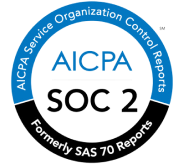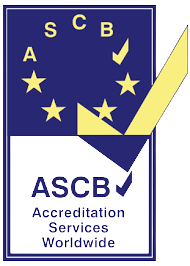Table of Content
- Introduction
- When and where has coffee badging emerged from?
- Can we relate coffee badging to presenteeism?
- Why are employees necessarily participating in coffee badging?
- Reason 1: Forcing the invite to the office
- Reason 2: Employees are getting rewards for showing up
- Reason 3: There is a strong disconnect within the organisation
- Reason 4: There is no alternative left to employees
- Conclusion
- FAQs on Coffee Badging
- Why is coffee badging an uproaring trend at the workplace?
- What are the signs to know when someone is coffee badging at your office?
- Can HRMS software help dissolve coffee badging workplace woes?
Introduction
"Coffee Badging" is the new blown-up return-to-office trend. Coffee badgers turn up at the office for only a few minutes or an hour. It shows they are present and working. However, they are not efficient enough. Showing up at workplaces, mingling with people. and not doing any actual work is a total waste of productive hours or days assigned to everyone in the team.
In fact, coffee badging reflects deeper issues seeming and stemming from the office culture, policies, and the trust employees have in their senior or super seniors.
As a hiring manager, you must have come across other workplace woes and trends this year like quiet quitting, rage applying, bare minimum Mondays, etc.
So know that the coffee badging phenomenon is making employees clock in and clock out of the system just in time like an Irish goodbye.
We can say it’s the coffee badgers or employees being a bit rebellious to follow the return-to-office trend; they were comfortable enough to work at home.
Not that they didn’t work at their maximum potential and capacity when they were working remotely.
However, being in the office doesn’t mean that they are working all the time.
It is kind of a tricky situation for the talent acquisition and development managers to understand. They have to set some ground rules and understand if the workers are really wasting time by coming to the office or not.
Before that, let’s dive deeper and know more about this (coffee badging) phenomenon; a sly euphemism for showing up to work, wasting time chatting around, and clocking out in a zap.
Want to skip the post?

When and where has coffee badging emerged from?
Truth be told, 2023 has seen a sharp rise in return-to-office trends by hiring and reporting managers. It’s the response by employees who were enjoying their flexible lifestyles at home. In an online survey in August 2023, at least 47% of employees said they would quit their jobs if the RTO were forced upon them!
But that is a luxury not every staff member can afford. Many of us have bills to pay and other personal financial commitments to stick to. For that, we need to remain employed. Switching a job in a tighter, recession-struck, and inflating economy is not easy.
So when such people show up at offices, they end up indulging in coffee badging practices. It means showing up to work for the most crucial discussion and for a limited period. Then, they check out just in time to enjoy their remote work schedule for the day.
For instance, employees come to the office late, hang around a bit, talk to the most influential people in the office, and clock out. That way, everyone will know that the person at least showed up at the office for once. However, they haven’t done anything productive, per se. They just hung around for a bit, like having a coffee in the middle of their flexible work hours.
Related article: How to Build a Responsible Work Culture with HRMS?
Can we relate coffee badging to presenteeism?
Coffee badging can be a subset of presenteeism in the offices. Presenteeism is an umbrella term where employees believe and give more importance to showing up at the office instead of delivering more results.
They will go to the office or stay online for long hours just to come across as busy and more productive. Such employees will go to the office even when they’re injured, sick, or unable to work to their full capacity on a particular day.
Coffee badging is presenteeism’s cousin, echoing the modern style of showing up to work. It shows that employees are coming to the office as per the employer’s demand, and they will contribute as much as they deem fit for the time to advocate flexwork.
Why are employees necessarily participating in coffee badging?
After understanding coffee badging meaning, it’s important to discuss why employees are greatly participating in it. Throughout the blog post, you understand that it's another card played out by employees in response to the employer’s RTO card. However, there could be several other underlying reasons that you might not have considered earlier.
Reason 1: Forcing the invite to the office
Employees who are already working in remote locations are not comfortable returning to offices. They already have a set routine. Most of them are caregivers in their families. Employers end up forcing them to return to office, which does not make them more productive. In other situations, many employees are returning to the office to face the unresolved toxic culture.
Bottom line: It’s not wrong when employees want to have flexible working schedules or remote workstations. Understand your employees' strengths and weaknesses when it comes to choosing a working lifestyle. Do not try to change it unnecessarily until and unless the work really demands it.
Fix it: Install a flexible workforce management system in your organisation. It helps you to understand the working pattern of a person in your organisation. That is because everyone has different styles of work to be more productive. Similarly, not all of them can afford to work from the office at all times.
Reason 2: Employees are getting rewards for showing up
Employees indulge in coffee badging activities when they know that the office culture is such. They are not getting rewarded for their contributions; for more appreciation, they have to show up to work, irrespective of their productive hours. That means they have to be present in the office, even if it means to be there for a minute or an hour.
Bottom line: You should not build a culture of showing off one’s presence in the office for no reason. Employees get paid a basic amount of salary for that. What you need instead is a performance-based and merit-based culture so that employees feel appreciated for every contribution and milestone they crack.
Fix it: Install a future-forward performance management system in your organisation. When doing so, it must be clear to each and every employee what they will get appreciated for. Once they know that, it’s up to them to do the work from the office, field, or remote locations. Give them that authority and liberty to take ownership of their job roles.
Reason 3: There is a strong disconnect within the organisation
Employers might not have ample time to catch up with employees. They are less aware of their staff’s issues and workflows. Because of that, employers and reporting managers end up micromanaging their employees in the office. When these staff members are working online, employers grow anxious and doubtful because of the absence of a transparent workflow engine and a lack of engaging culture.
Bottom line: Employers don’t need the staff in the office to engage with them daily. They have to set up a schedule and be interested enough to know about their team members personally and professionally to build a rapport. This relationship does not need employees to show up at work just to show their faces. The disconnect can be bridged if employers or the management team are ready to exercise empathy and bring more humanised factors into the human resources wing for scaling the business operations to overcome coffee badging and other similar issues.
Fix it: Streamline the culture policy in the organisation. Update and upload it on the network or social intranet for every team member to digitally acknowledge. Everyone must be clear as to what kind of behaviour the organisation would accept and dislike. Build an engaging culture with your teammates with chat processes and continuous help desks like HR chatbots and private/group messaging. Schedule regular scrum calls with your teammates online and make them feel valued and heard. Talk to them in 1-on-1 sessions and get down to learning the details of their daily roadblocks at work.
Reason 4: There is no alternative left to employees
There could be certain work deliverables for which employees need to be present at the office. They can’t ignore it or postpone it. However, the workplaces are not environment-friendly or are not letting employees be productive enough. If the utilities there are not clean, easily available, and accessible, employees will only end up wasting their time (i.e., coffee badging), not wanting to show up at work but doing so for the sake of it.
Bottom line: Make the office workstations friendly, spacious, and clean enough for creative and high-performing teams to show up to work with a purpose.
Fix it: Take regular surveys and suggestions on the social intranet from your staff to know what makes the workplace more favourable and purposeful to them. Make the changes as and when there is a new feasible suggestion and concern to be resolved on time.
Conclusion
Employees will find many reasons to participate in wasteful activities like coffee badging. However, embedded analytics in uKnowva helps you understand the engaging patterns of your staff. You can get hints if they are slacking or are overburdened at any time.
Hence, with such smart tools, hiring and talent managers can prevent the onslaught of new workplace concerns or woes.
Plus, it keeps the workplace more happening, transparent, and autonomous for high-performing teams to have fuller control of their workdays from hire to retire.
Contact us now to solve this issue with streamlined HR Ops.
FAQs on Coffee Badging
Why is coffee badging an uproaring trend at the workplace?
It is an uproaring trend set by employees as a response to the forced RTO policies by employers across various industries.
What are the signs to know when someone is coffee badging at your office?
When the employees show up in the office, roam around at different desks to network, not do any work specifically and clock out as soon as possible, it means they are indulging in coffee badging practices.
Can HRMS software help dissolve coffee badging workplace woes?
Yes, it can. With smart and transparent workflow management features like PMS, social intranet, workflow automation, AI tools, Happiness Meter, HR analytics, and more, employers can tackle and prevent workplace woes like coffee badging from occurring.












